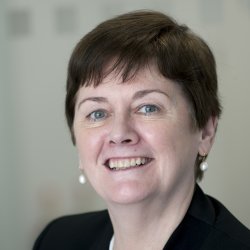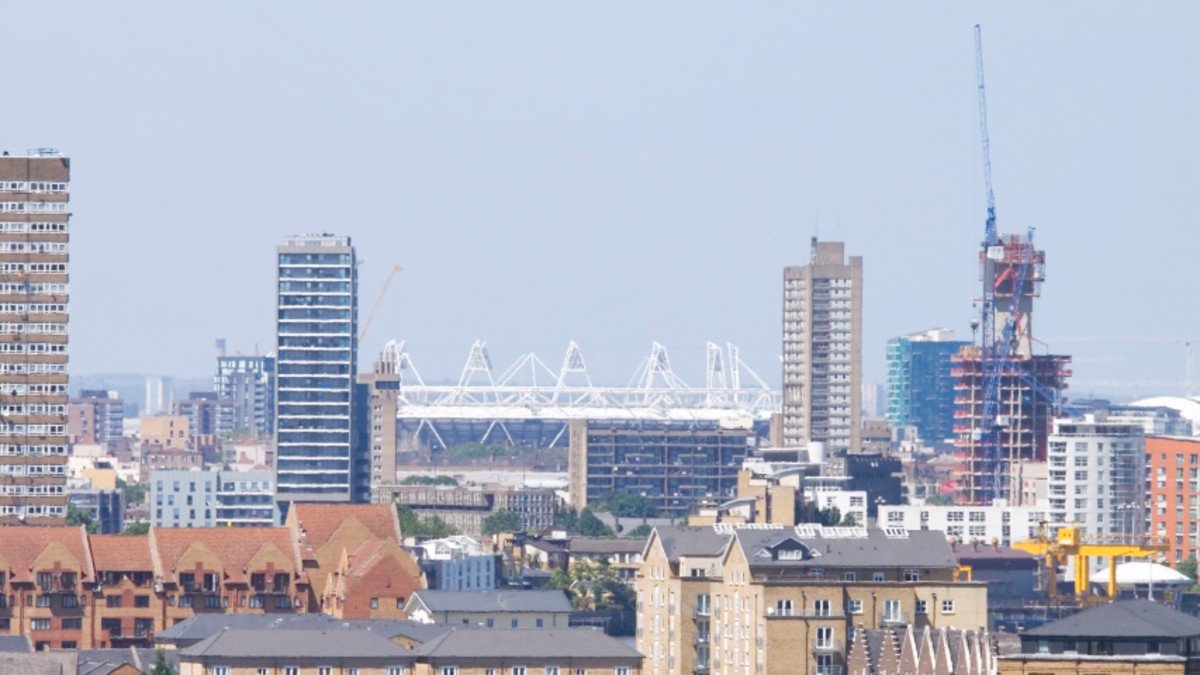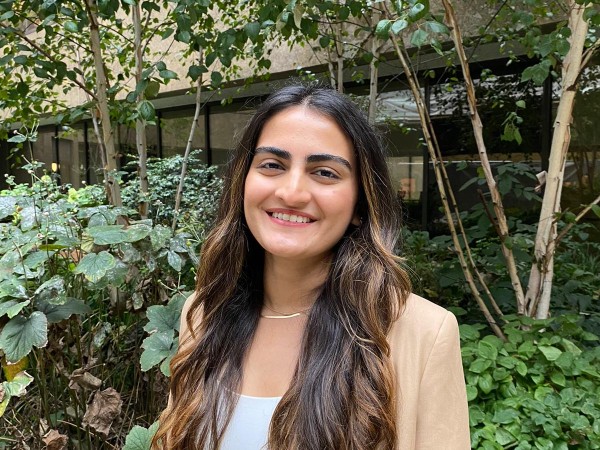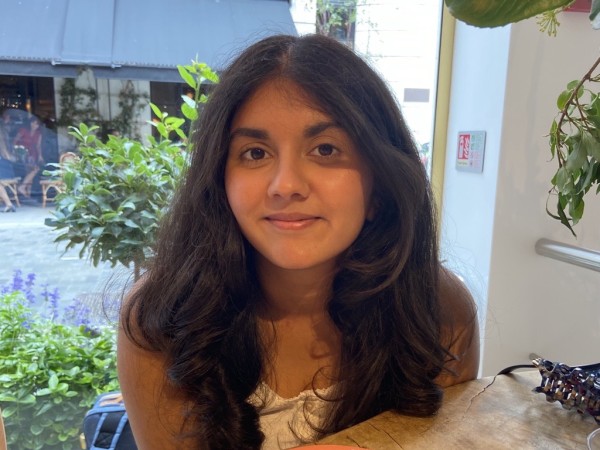
Sue Kershaw
Sue Kershaw is our Alumna of the Year in the Vice-Chancellor’s Alumni Awards. Currently the MD Transportation at Costain, Sue graduated from our Department of Civil and Environmental Engineering in 1982.
Course
Civil Engineering BSc (Hons)Graduation year
1982In a 40-year career, she’s managed large-scale infrastructure projects across the globe. She also played a key role in the successful 2012 London Games as the Deputy Director of Transport for the Olympic Delivery Authority.
One of only 12 women in the UK to be elected a Fellow of the Institution of Civil Engineers (ICE) in 2000, she became the first female president of the Association of Project Management (APM) in 2019.
Sue uses this position to “secure the pipeline of future talent” and promote engineering as a career option to young people. As a visiting professor at University College London, she’s also supported undergraduates securing industrial placements, while giving talks at prestigious bodies aimed at inspiring the next generation of engineers.
What does it mean to be chosen as Alumna of the Year?
I’m quite humbled by it. It came out of the blue in the middle of lockdown, too, which made it even more special.
Why did you choose to study at Surrey?
It was a beautiful campus university. It was very picturesque, too, nestled under the cathedral. I came from Dartford and Surrey was a nice fit. It was close to London and my home county of Kent.
Why civil engineering?
It was a choice between that or town planning. My dad was a civil engineer and I followed him around the world. I was born in New Zealand, and I lived in Pakistan and Nigeria. When he was younger, he faced a similar dilemma.
A big plus in selecting civil engineering is that you leave a legacy. I’ve been involved in big projects, such as building Canary Wharf station on the Jubilee underground line. My kids know I helped build that. It’s a nice feeling, especially when it’s in the area where you live and you can see the difference it’s made.
What were the best things about your course?
The first year was interesting because we had to do electrical and mechanical engineering alongside civil. That gave me a basic understanding of different engineering professions.
The fact it was a sandwich course was great, too. After your second year of study, you went out into industry and started working. When you returned, you were a more rounded person.
Surrey also offered two sessions that were unique to civil engineering courses at the time. The first was on leadership and the second was on how business works, which included explanations about the stockmarket and finances.
What’s your happiest memory of your time at Surrey?
Probably finishing my finals. There was a sense of euphoria because you were free. But there was also apprehension because you had to face what came next.
For me, that was starting a job with Taylor Woodrow and I’ve remained in industry ever since.
You won an ICE award for your role in the 2012 London Olympics. Can you tell me about that?

"More opportunity and wealth has come into East London thanks to the infrastructure legacy of the Olympics," says Sue
Working on that remains a personal highlight. It was in my home city, and the main Olympic Stadium and Olympic Park were in a place where my kids were growing up. It gave the East End a bit of pride back, giving it the opportunity to grow and be as wealthy as the city’s West End.
I remember when I came back from working in Bangkok to live in London, and I used to get a bus to go to Stratford. You’d see socially disadvantaged people struggle onto the bus with a couple of kids in tow, a buggy and a week’s worth of shopping. More opportunity and wealth has come into the area thanks to the infrastructure legacy of the Olympics, and it’s a more beautiful place to live. Nobody would have said that ten years ago.
To be part of the team that delivered that was an amazing experience. It was a great place to work, too. Everyone there wanted to be there. It had that little sprinkle of magic dust. It wasn’t just about the project. It was about national pride.
We also brought it in on time and under budget, returning £100million to the UK Government.
You’re now MD Transportation at Costain Group. What’s that like?
I started on the first day of lockdown on 23 March 2020. That was interesting. But the span of the role is fantastic. My department covers aviation, rail and highways, and we work on anything from small jobs with local authorities to major national projects such as Crossrail, HS2 and smart motorways.
The reason I came to work at Costain is to retain that pedigree of major project delivery and add to it, with consultancy and advisory expertise. It’s a varied role and I can spend a day in board meetings, another going on site visits and another mentoring people. It keeps me excited.
What’s your greatest career achievement?
The 2012 London Olympic Games was the job I’m most proud of. The one that taught me the most, however, was working for government as the project representative on HS2. I learnt a lot about how politics and government works, and how difficult it is to start these major schemes from scratch.
From a professional point of view, it’s when I became the first woman to be chosen as the President of the Association of Project Management. That made me very proud indeed.
What advice would you give to students wanting to follow in your footsteps?
Be bold, be brave and don’t be scared of asking people for advice. I’ve always found people love sharing their learnings.
In 20 years, you could be the chief executive of a major construction organisation, and that could be because you’ve taken onboard good advice that’s been offered. I’d also recommend working abroad for a decent length of time to any engineer.
Learn more about studying in our Department of Civil and Environmental Engineering.

